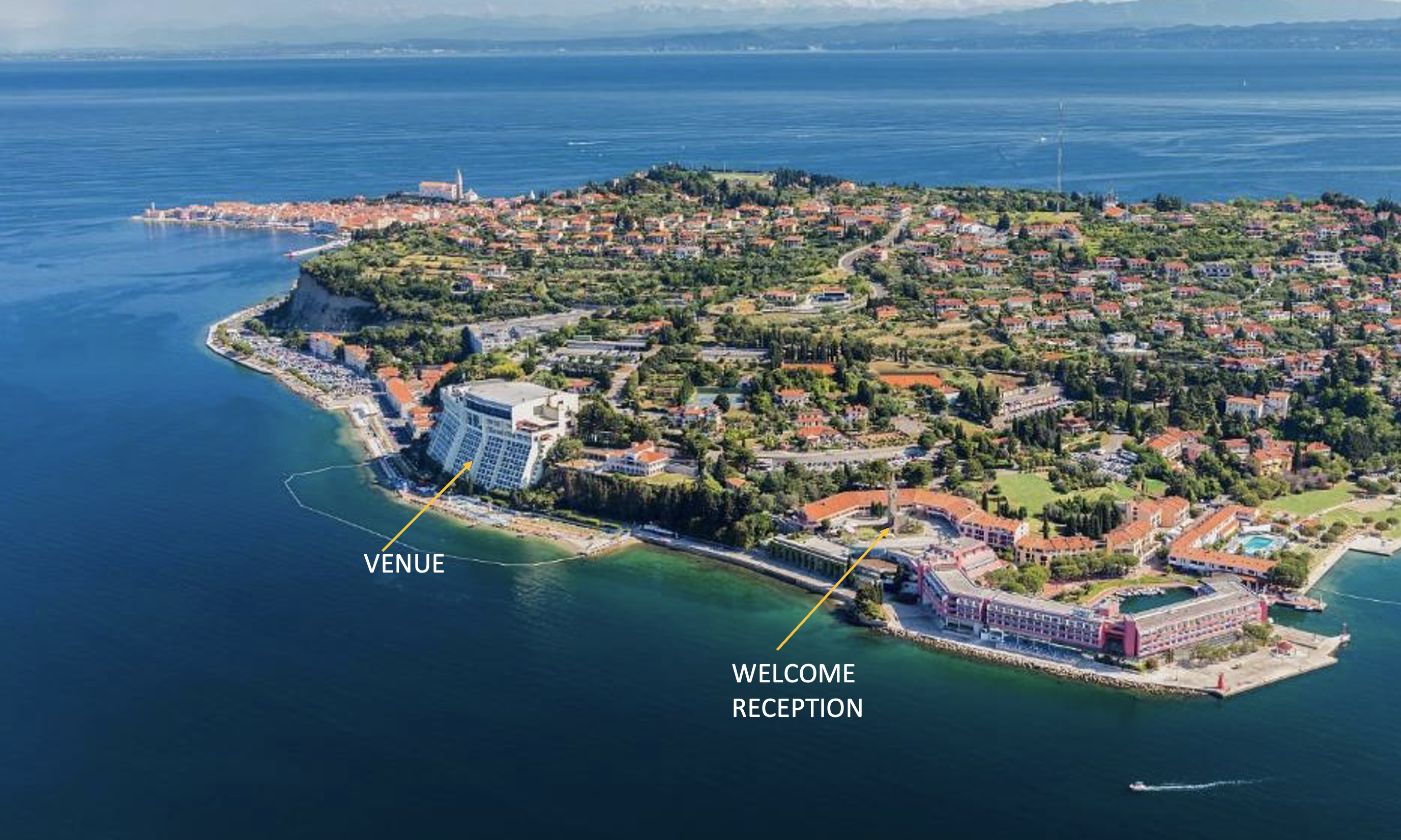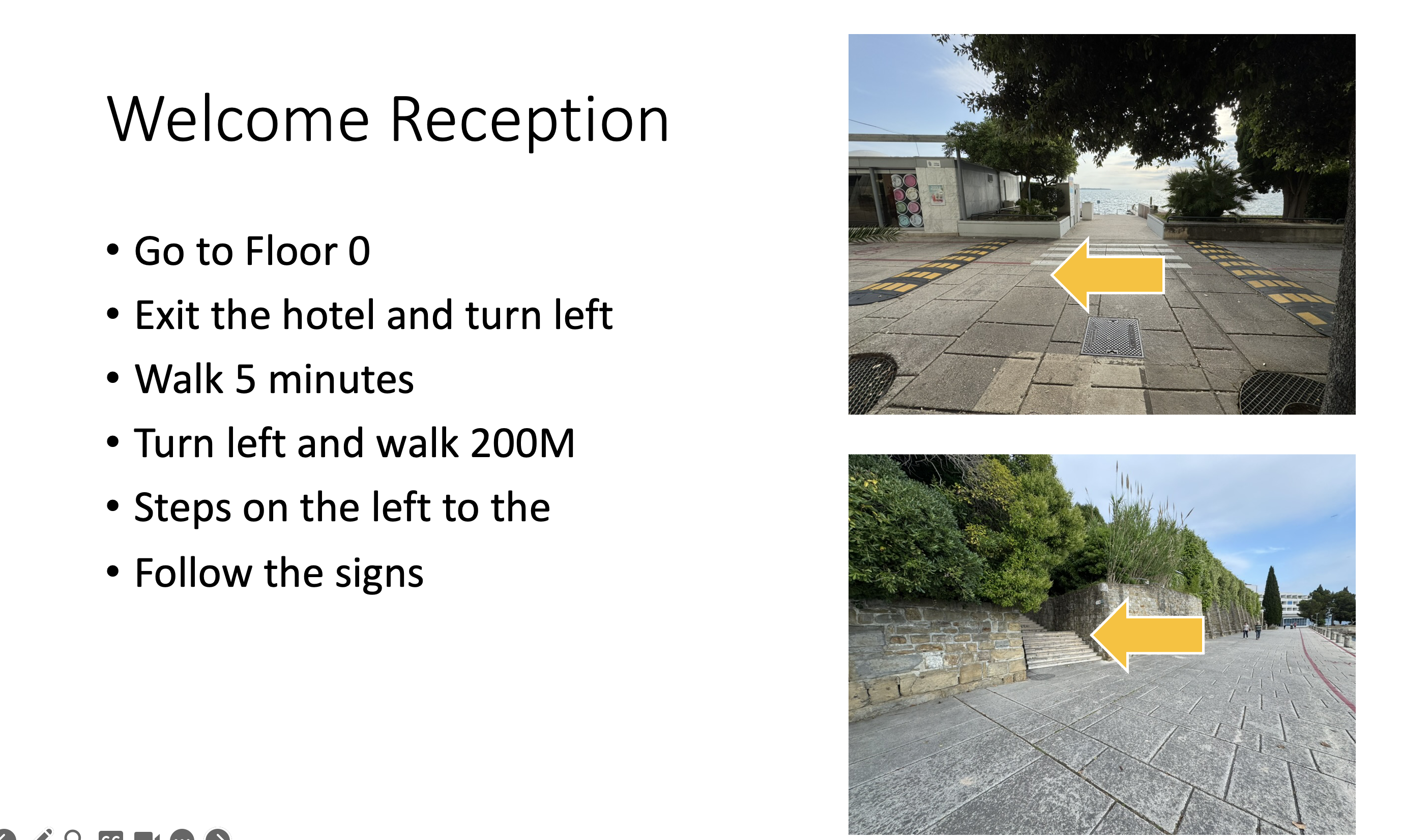We are delighted to announce the contributions that were given Best Paper Awards and Best Reviewer Awards. Congratulations to all for making ESWC 2025 a remarkable conference!
???? Best Paper Awards
???? Best Research Paper Award
???? An Algebraic Foundation for Knowledge Graph Construction [pdf]
by Sitt Min Oo, Olaf Hartig
???? Nominees:
- ???? Designing Hierarchies for Optimal Hyperbolic Embedding [pdf]
by Melika Ayoughi, Max van Spengler, Pascal Mettes, Paul Groth - ???? Predicting Clinical Outcomes from Patient Care Pathways Represented with Temporal Knowledge Graphs [pdf]
by Jong Ho Jhee, Alberto Megina, Pacôme Constant Dit Beaufils, Matilde Karakachoff, Richard Redon, Alban Gaignard, Adrien Coulet - ???? Delete/Rederive with Marking for Update Streams [pdf]
by Moritz Illich, Birte Glimm
???? Best Student Research Paper
???? Analyzing the Influence of Knowledge Graph Information on Relation Extraction [pdf]
by Cedric Möller, Ricardo Usbeck
???? Dieter Fensel Visionary Contribution Award
???? Representing and Querying Data Tensors in RDF and SPARQL [pdf] [online poster]
by Piotr Marciniak, Piotr Sowiński, Maria Ganzha
???? Best Resource Paper Award
???? OntoAligner: A Comprehensive Modular and Robust Python Toolkit for Ontology Alignment [pdf]
by Hamed Babaei Giglou, Jennifer D’Souza, Oliver Karras, Sören Auer
???? Nominees:
- ???? Interoperable Interpretation and Evaluation of ODRL Policies [pdf]
by Wout Slabbinck, Julian Rojas, Beatriz Esteves, Pieter Colpaert, Ruben Verborgh - ???? ShowVoc: A Thorough Platform for Publishing and Browsing Linked Open Datasets [pdf]
by Armando Stellato, Manuel Fiorelli, Tiziano Lorenzetti, Andrea Turbati, Willem van Gemert, Denis Dechandon, Aniko Gerencser, Enrico Francesconi
???? Best In-Use Paper Award
???? Language-Based Testing for Knowledge Graphs [pdf]
by Tobias John, Einar Broch Johnsen, Eduard Kamburjan, Dominic Steinhöfel
???? Nominees:
- ???? OWL strict: A Constrained OWL Fragment to Avoid Ambiguities for Knowledge Graph Practitioners [pdf]
by Robert David, Albin Ahmeti, Shqiponja Ahmetaj, Axel Polleres - ???? Research Knowledge Graphs: The Shifting Paradigm of Scholarly Information Representation [pdf]
by Matthäus Zloch, Danilo Dessì, Jennifer D’Souza, Leyla Jael Castro, Benjamin Zapilko, Saurav Karmakar, Brigitte Mathiak, Markus Stocker, Wolfgang Otto, Sören Auer, Stefan Dietze
???? Best PhD Symposium Paper
???? Neuro-Symbolic AI for Conflict-Aware Learning over Knowledge Graphs [pdf] [online poster]
by Laura Balbi
???? Nominee:
- ???? AI Risk Management for System Design: An Ontology-Driven Approach Integrating Engineering Principles and Ethical Insights [pdf]
by Muhammad Ikhsan
???? Best Poster Award
???? Representing and Querying Data Tensors in RDF and SPARQL [pdf] [online poster]
by Piotr Marciniak, Piotr Sowiński, Maria Ganzha
???? Nominees:
- ???? How Low Can We Go? Quantization Effects on LLM SPARQL Generation [pdf] [online poster]
by Matt Murtagh-White, P.J. Wall, D O’Sullivan - ???? MYAM: LLM-Supported Mapping Generation for Semantic Manufacturing RetrievalWilma Johanna Schmidt [pdf] [online poster]
by Irlan Grangel-González, Tobias Huschle, Lena Wagner, Evgeny Kharlamov, Adrian Paschke
???? Best Demo Award
???? A User-Friendly SPARQL Query Editor Powered by Lightweight Metadata [pdf] [online poster]
by Vincent Emonet, Ana-Claudia Sima, Tarcisio Mendes de Farias
???? Nominees:
- ???? SparqLLM: Retrieval-Augmented SPARQL Query Processing [pdf] [online poster]
by Pascal Molli, Hala Skaf-Molli, Sébastien Ferré, Alban Gaignard, Peggy Cellier - ???? PM-SAMPO: Semantic Portal for Heritage Object Provenance Research [pdf] [online poster]
by Sarah Binta Alam Shoilee, Annastiina Ahola, Heikki Rantala, Eero Hyvönen, Victor de Boer, Jacco van Ossenbruggen, Susan Legêne
???? Best Reviewer Awards
???? Research Track
???? Best Reviewer Award: Lionel Medini
???? Honourable Mentions: Albin Zehe, Andreas Hoth, Carlos Bobed, Carlos Buil Aranda, Femke Ongenae, Francesco Corcoglioniti, Gerard Pons (subreviewer), Ieben Smessaert, Jose Emilio Labra Gayo, Ruben Verborgh, Terry Payne, Xander Wilcke, Xiaowang Zhang
???? Best Senior PC Reviewer Award: Antoine Zimmermann
???? Honourable Mentions: Ernesto Jimenez-Ruiz, Manolis Koubarakis
???? Resource Track
???? Best Reviewer Award: Victor de Boer
???? Honourable Mention: Armando Stellato
???? Best Senior PC Reviewer Award: Irene Celino
???? In-Use Track
???? Best Reviewer Award: Edelweis Rohrer
???? Honourable Mentions: Abdul Wahid, Tomi Kauppinen
???? PhD Symposium
???? Best Mentor Award: Maribel Acosta
???? Poster & Demos Track
???? Best Reviewer Award: Aidan Hogan
???? Honourable Mentions: Sylvie Cazalens, Jose Emilio Labra Gayo, Pieter Colpaert, Alessandro Russo




